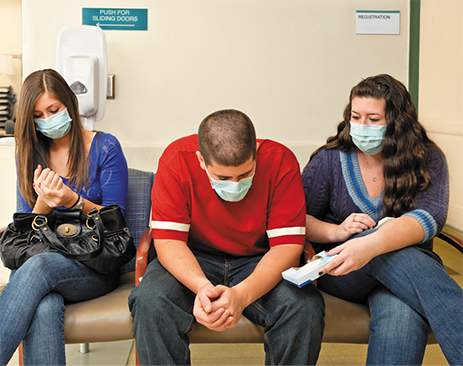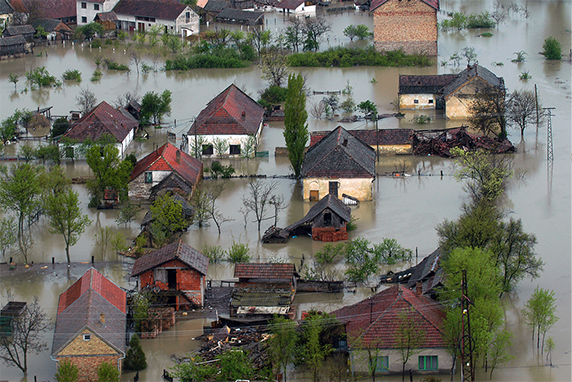15.9 Emergency Preparedness
In other emergencies, such as epidemics or natural disasters, all pharmacy personnel may be called into action to help support the community. Many personnel may be out sick, and transportation and distribution networks may be seriously compromised. How can your wholesale vendor get medications to you? How can patients from your pharmacy, displaced by floods, tornadoes, or hurricanes, get needed medication? What role can the pharmacy best serve in the community?
Your retail or hospital pharmacy may be asked by the regional health department to volunteer and participate in emergency preparedness drills or real-life emergencies in your local community. In addition to attending planning meetings, all staff must complete educational programs for the pharmacy to prepare and participate fully. An interested technician could assist in planning and serve as a liaison with the health department.
Epidemic Preparedness
If there is a serious epidemic, what is the plan for your pharmacy? Can it be a source of information and education for patients? Can the pharmacy share personnel with the department of public health? What type of protective gear will be available, and which personnel will receive vaccines or antiviral medications if dealing with the public? Pharmacies, by working with community healthcare resources and emergency planning, can be particularly significant in preserving health and saving lives during times of crisis.
If you have specialized lifesaving credentials, such as cardiopulmonary resuscitation (CPR), advanced cardiovascular life support (ACLS) certification, or experience as an emergency medical technician (EMT) or as a medic in the military, then you are a particularly valuable asset to your pharmacy at any time and to your whole community in the time of a health crisis. Credentialing is the process for validating the qualifications of licensed professionals and may define what functions and roles pharmacists and pharmacy technicians can perform. Depending on your training and experience and the extent of the crisis, you may be triaging or screening injuries or illnesses in the field, performing CPR, providing necessary medications and supplies to medical personnel, or administering vaccines in times of a regional pandemic or epidemic.

During an outbreak of an easily communicable disease or illness, such as the flu, many healthcare facilities may ask patients waiting for treatment to wear masks to avoid spreading the contagion to others.
Natural Disaster Preparedness
Natural disasters, such as hurricanes, floods, earthquakes, blizzards, and fires, can be devastating to both a business and a community. If the disaster is more than just a temporary power outage, the pharmacy could lose and not recover customers. An extended power outage affects not only lights, but also heating and air conditioning (and phones) and may have an adverse impact on the integrity of the drug inventory. The alarm systems at the store may not be functional. As covered in Chapter 9, all computer data should be backed up daily preferably, off-site.
If you reside in a high-risk area, it is even more important to have a well-thought-out and well-written disaster plan. That plan should be communicated to employees and followed up with training programs and drills. A pharmacy technician can offer to work with the owner of the pharmacy to develop this plan. Some potential disasters allow some time for advance preparation. Monitoring the National Weather Service may allow the pharmacy to stock up on inventory from its wholesaler, or phone customers to come early to pick up refills. A particularly useful web resource for emergency planning may be found at https://PharmPractice7e.ParadigmEducation.com/Disaster.
The plan should also consider a time to restore and reopen the pharmacy to fill emergency prescriptions, perhaps at a temporary location. The pharmacy should always keep ice chests and coolers readily available, to store refrigerated items such as insulins and high-cost biotechnology drugs.
Communication plans must be thought through ahead of time, before any disaster is pending. How will the pharmacy communicate with its employees and customers? Does it have sufficient information to text on cell phones? Or develop a phone tree? A hard copy of important phone numbers should be readily available. A current list of inventory should be accessible in the event of later liability or insurance claims.
A community pharmacy could collaborate with other local small businesses and serve as a communications hub during a time of emergency. The devastation of natural disasters cannot be prevented, but an effective disaster plan may minimize its adverse impact on a small business and the community.

Disasters come in different forms, such as flooding, and though no one knows when they may happen or what they will fully involve, community pharmacies and hospitals have to plan for them.